Search Results
Showing results 141 to 160 of 228
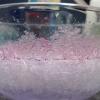
Salt Crystal Garden
Source Institutions
In this activity, learners will explore saturated solutions and discover how crystals form.
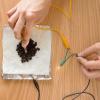
Aluminum-Air Battery: Foiled again!
Source Institutions
Construct a simple battery that's able to power a small light or motor out of foil, salt water, and charcoal. A helpful video, produced by the Exploratorium, guides you along on this activity.
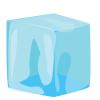
Ice Tower Excavation
Source Institutions
In this activity, learners will pretend to be archaeologist using this chilling experience.

Wax 'n Wash
Source Institutions
In this activity, learners create secret messages using a candle. Learners discover that watercolor paint is attracted to some materials, like paper fibers, but not others, like oil.
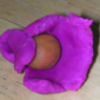
Atoms and Matter (K-2)
Source Institutions
In this activity, learners explore atoms as the smallest building blocks of matter. With adult help, learners start by dividing play dough in half, over and over again.
Making An Impact!
Source Institutions
In this activity (on page 14 of PDF), learners use a pan full of flour and some rocks to create a moonscape.
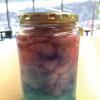
Nebula in a Jar
Source Institutions
In this activity, learners will build a model of a nebula using cotton balls and colored water. Astronomers photograph nebulas and add colors to provide information about the nebula's composition.
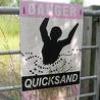
COSI Quicksand
Source Institutions
In this chemistry experiment, learners get to make a very bizarre substance using corn starch and water. Is it a solid? Is it a liquid? Or is it a different kind of substance entirely?

DIY Elephant Toothpaste
Source Institutions
In this activity, learners will experiment with catalysts to create an at-home version of elephant toothpaste.

Fantastic Plastic
Source Institutions
In this activity, learners investigate the properties of plastic bags. Learners find out what happens when they slowly push a pencil through a plastic bag filled with water.
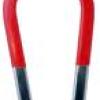
Dangling Magnet
Source Institutions
In this activity about magnetism (page 13 of the pdf), learners will experiment with magnets to explore how water and other liquids affect the strength of magnetic fields.
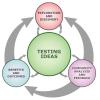
Exploring Liquids
Source Institutions
Young learners investigate and observe the properties of three liquids -- water, vegetable oil, and corn syrup. They use their senses to collect data and ask and answer questions.
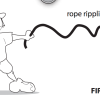
Wave on Wave
Source Institutions
In this activity, learners use raisins and seltzer water to understand why waves don’t move objects forward. Learners conduct two simple experiments to understand the circular movement of waves.

Waterscope Wonders
Source Institutions
In this activity, learners will create a magnifying glass called a waterscope, using water and household items, to examine various objects.
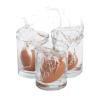
Egg Drop Trick
Source Institutions
In this activity, learners explore the real science behind an egg drop "magic trick." Learners will wow their families by harnessing gravity, friction and motion to make 3 eggs fall off of their pedes

Your Body in Your Mind's Eye
Source Institutions
This activity is about how you form mental images of your body's position in space, independent of vision. Can you take a sip of water from a cup with your eyes closed?

How the Mushroom Got Its Spots
Source Institutions
In this activity (p.26 of PDF), learners discover why mushrooms have spots. Learners use a balloon, toilet paper, and water to simulate what happens as mushrooms grow.
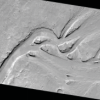
Mars from Above: Carving Channels
Source Institutions
In this activity, learners create channel features with flowing water, comparing their observations to real images of Mars and Earth taken by satellites/orbiters.

Sound Dampeners
Source Institutions
In this activity, learners will experiment with water- and air-filled balloons as a way of dampening sound before it reaches their ears.
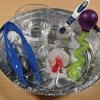
Using Tools and Melting Ice
Source Institutions
In this activity, learners will experiment with different materials that can melt and change ice.
